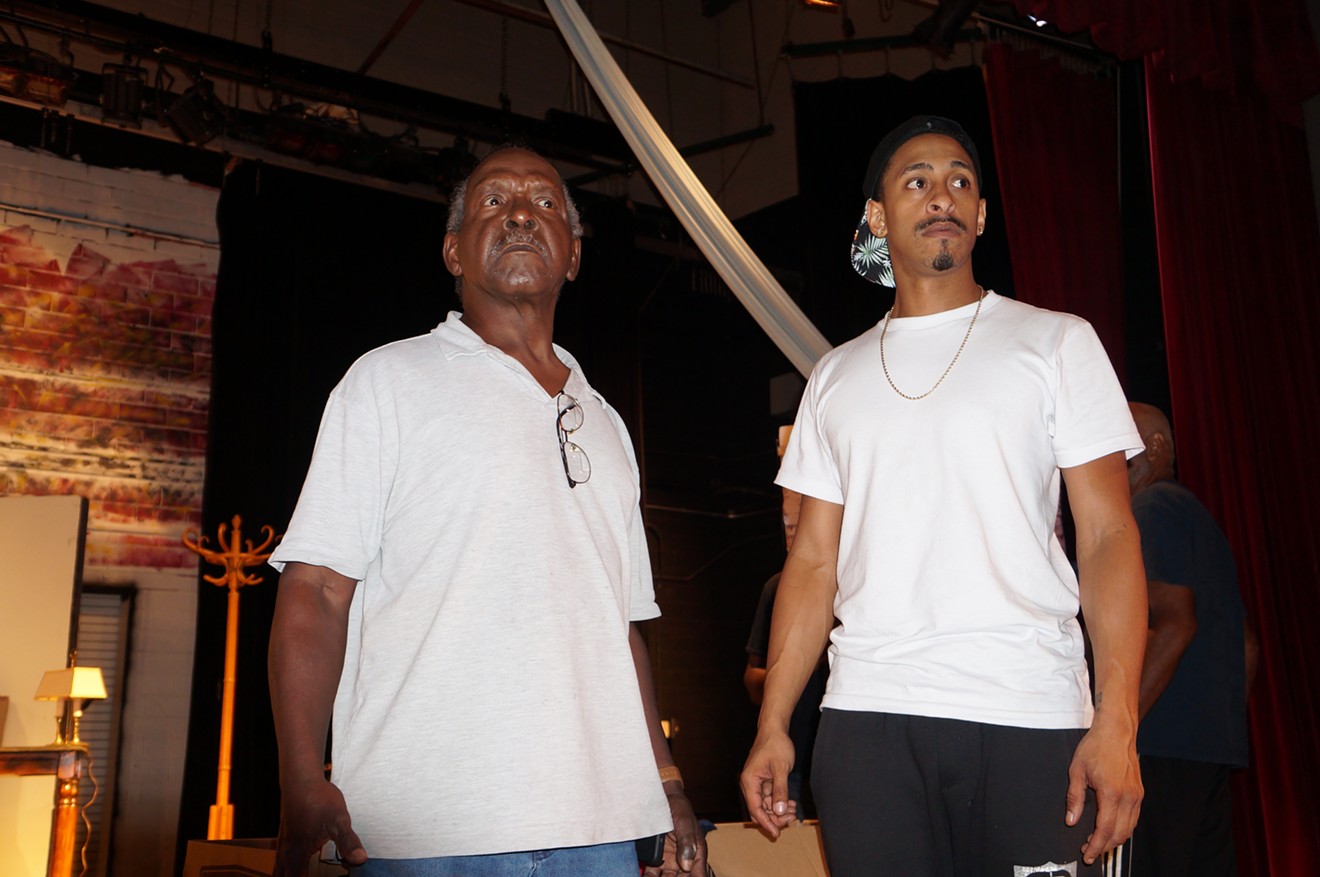It’s possible that O'Neal took the moment directly from actual interviews conducted with men in a similar type of program that became the loose basis for her play. Whether it was inspiration or imagination, it’s a sweet scene written with just the right touch of humor and gravity.
It’s too bad then that pretty much everything that follows has none of this finesse or purpose. Instead, mirroring Vincent’s soap opera melodrama, Fly on the Windshield becomes a Jenga tower of endless twists and turns, reveals and tragedies, secrets and scandals, crimes and punishments,
It’s not unusual for a writer to want to throw everything he or she can into a script for fear of leaving a potentially good idea out. And that’s a shame here as the story that O’Neal wants to tell, namely how six men navigate the process of rehab, faith and
In addition to Vincent, we meet the other five addicts. Bruce (Kenneth Mayes), a soft-spoken cocaine addict who beat his wife nearly to death when she flushed his stash down the toilet. Neil (Jimmy Vollman), a goofy meth-head with barely 6 teeth in his head. Rickie (a stupendous Alec Franco), the genuinely jolly, overall-wearing, middle-aged, alcoholic. The secretive rookie, Russell (played with cool nuance by Terrance Mays). And Clyde (a stand out performance by Brandon Morgan), a womanizing, charismatic, quick to temper, jokester, crack addict.
As we watch the men banter and learn about what brought them into rehab, O’Neal gives us more humor than sadness. The darkness is lurking, but she doesn’t let it define her story. We laugh with, not at these men as they let us in. We laugh when Clyde reads a letter from his mistress claiming that she loves him so much, she can’t wait to have his crack babies. We’re drawn in with laughter when Rickie floats the social advantages of being hooked on moonshine over street drugs. We like these guys and we’re willing to go on a narrative journey with them. We’re ready for the conflict that’s sure to come. We’ll feel their pain as they struggle.
That is until hackneyed plot layer after plot layer, everything from an escape to a love
Even the men in charge, Pastor Greer (a commanding Byron Jacquet) and his program overseer Cecil (David Osbie Shepard) aren’t immune from the soapy treatment. By the time we get to their gotcha character moments (think shady past, reverting to bad ways and family tree reveals), we just throw up our hands in exasperation up and say, sure, why not! All that’s left is for someone’s presumed dead twin to reappear and claim that it was, in fact, they who took the drugs, not the addicts and that it’s all been a big mistake.
To add insult to injury, O’Neal doesn’t even flesh out most of the play’s scandals and swerves. Instead, we the audience find out about it through dialogue that goes something like this: Character A did this and now they are being arrested, but I knew about it all along because I overheard it. Character B used to be this kind of person, and I know because I had a conversation with character D and they told me so. I’m character C and this happened to me and that’s why I did XYZ.
Huh, the audience thinks? Why are we being told this and not shown it? Why do we have to listen to endless conversations about what we haven’t seen or heard to catch up on what’s happening? The actors are there. Many of them are really good. Let them act the story, not tell it to us after the fact.
For his part, Director Curtis Von does his best to distract us from the utterly unruly script. An essentially talky script, with skit-like short scenes and little action, is a difficult thing to keep visually entertaining and at times Von struggles with what to do with his actors. Too often we see them tiding up the same 5 folding chairs on Jabari Collins’s spacious church set. But for the most part, Von lets his cast find a natural rhythm as they talk, tease and taunt each other.
The final scenes, however, are a mess. As the story comes to its improbable resolution bringing the men back together again, Von seems to be as checked out as we are and simply throws the actors together on stage, hoping that it will work and
One final note about the music in the play. Or more specifically the music
The gasp from some audience members showed just
Fly on the Windshield continues through August 19 at MATCH Theater, (Matchbox 3), 3400 Main. For information, visit matchouston.org. $25- $35.







